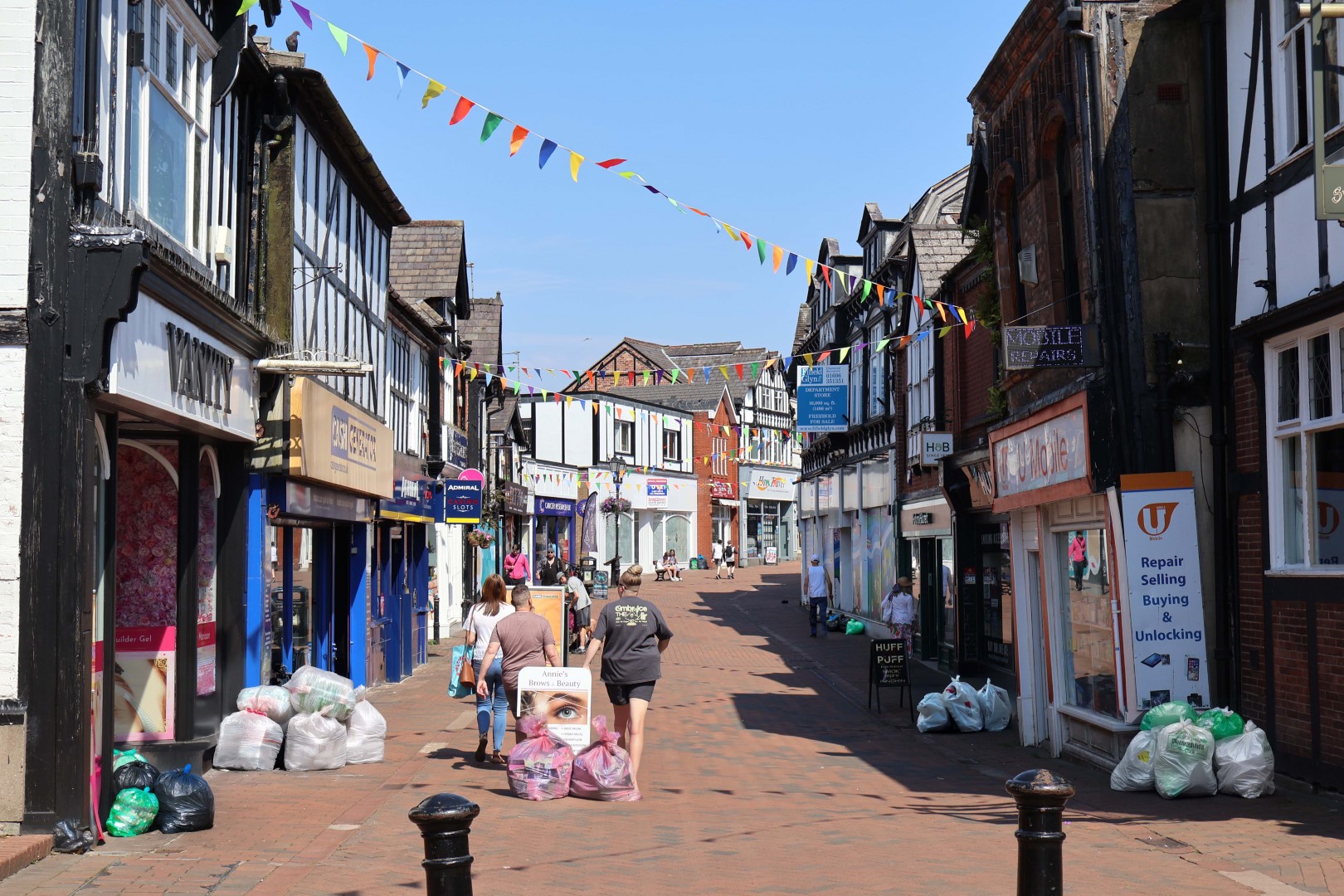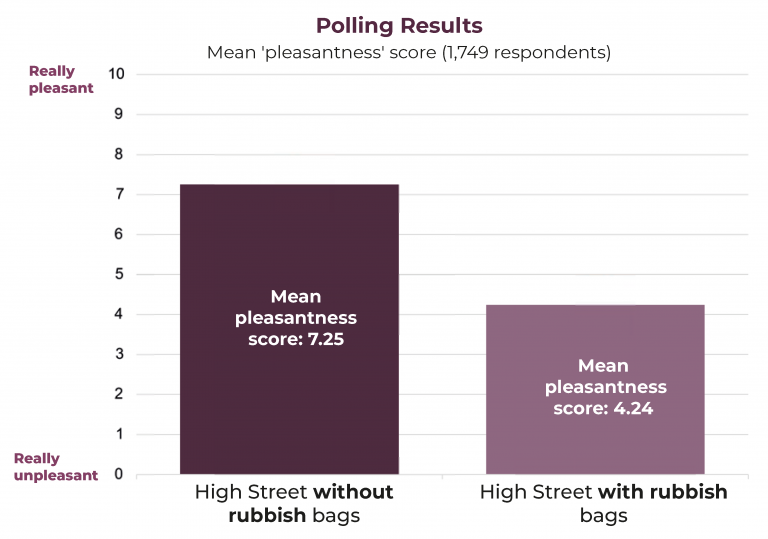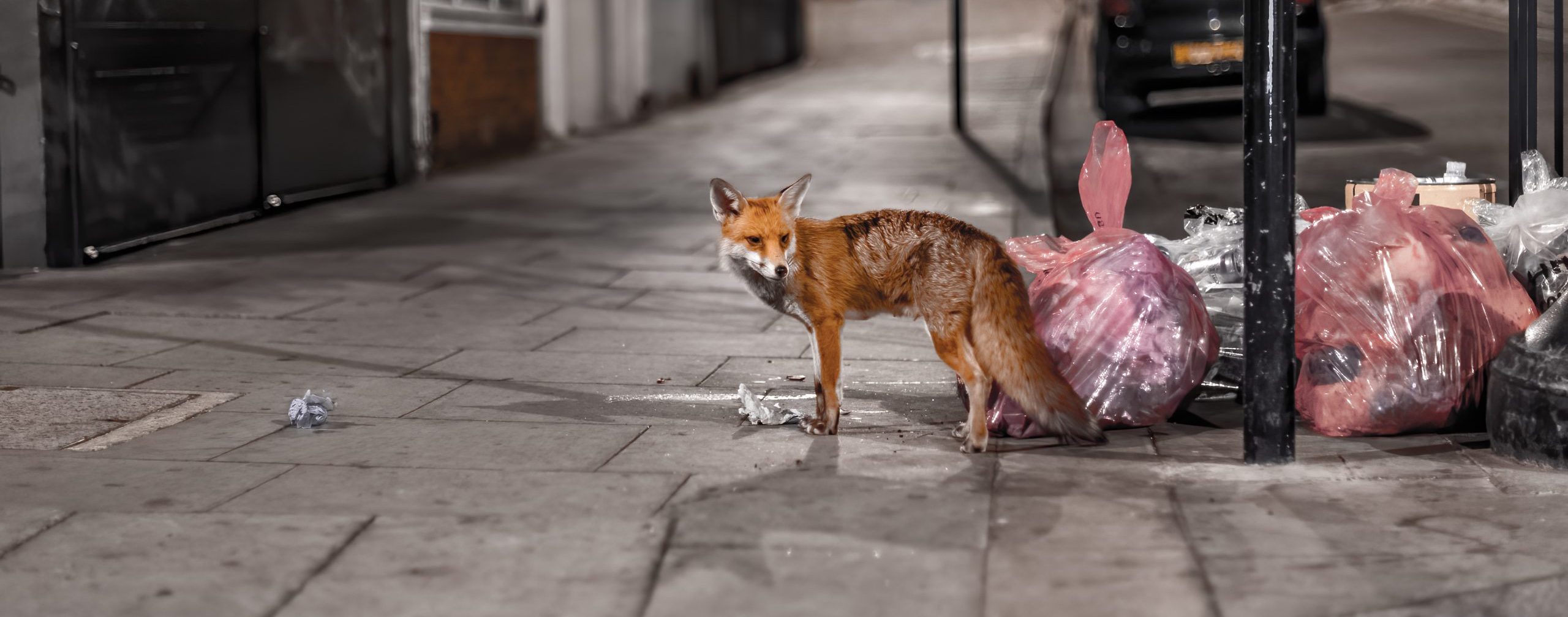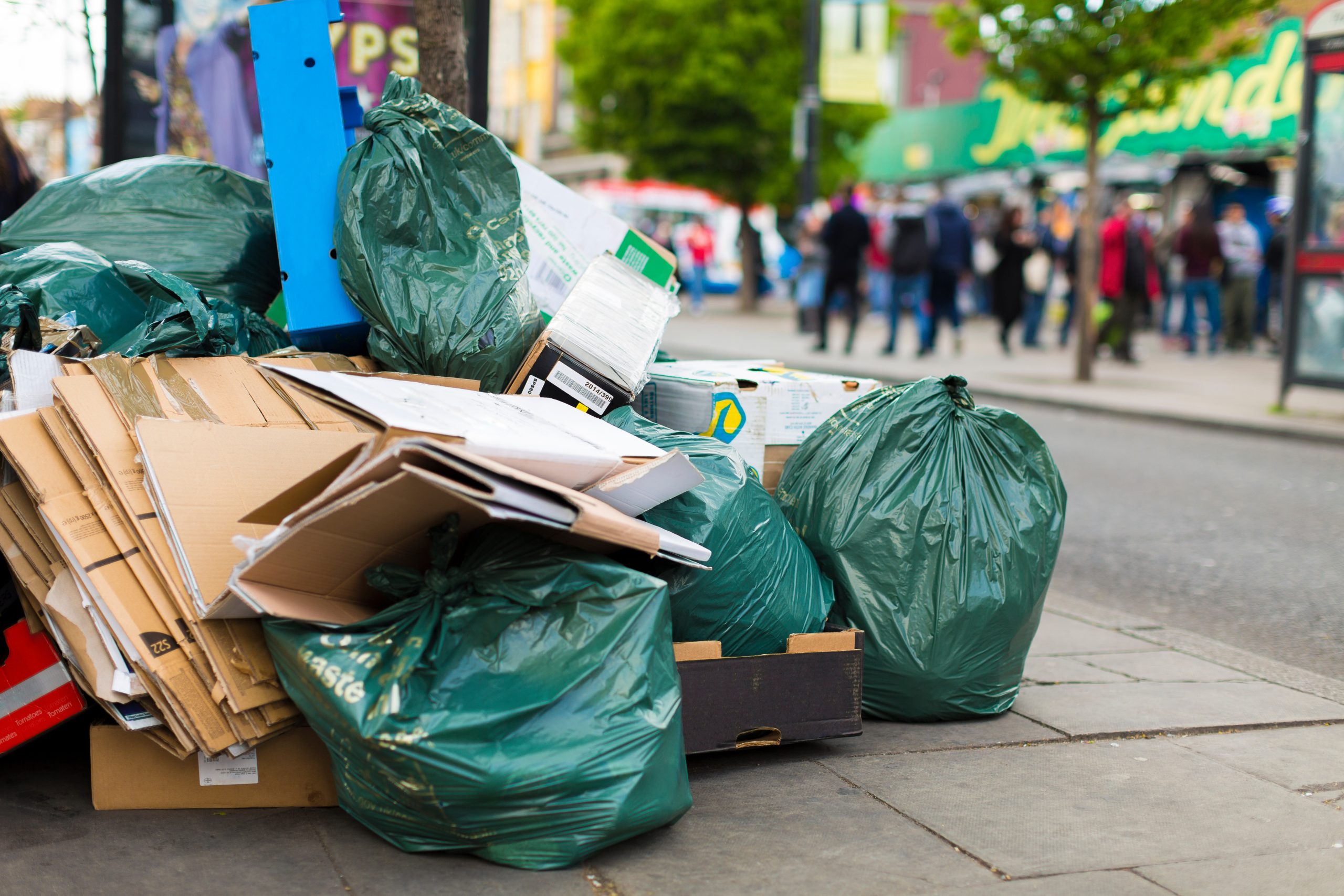Rubbish Refuse
Why our commercial waste management system does not work for high streets and how to fix it for people, place and prosperity
Why rubbish matters
The way we deal with our commercial waste is failing Britain’s high streets. With support from three central London Business Improvement Districts (BIDs) Central District Alliance, London Heritage Quarter, and Southbank BID, we have dived deep into this pressing issue. Our current system us lightly regulated, fragmented, and poorly serves our communities. In this report we look at how the system works and where it doesn’t, provide examples of places getting it right at home and abroad, and set out some key recommendations on how we can fix it.

And most people agree that our refuse is rubbish. In November 2024 we commissioned Deltapoll to run a visual preference survey to quantify the impact of waste on the perception of a street based on the images below. The results were clear, the level of perceived pleasantness was halved due to the presence of rubbish bags on the street.



The challenge of commercial waste on Britain’s high streets is significant but not insurmountable. Through a range of solutions, from small scale, bottom-up collective action through to top-down regulatory changes, we can create high streets that are cleaner, more sustainable and more inviting for everyone.
Alexander Jan, chair of Central District Alliance and Hatton Garden business improvement districts said:
“This latest research from Create Streets highlights the real challenges we face in tackling what feels like a relentless problem in London and our other major cities; how to control the often chaotic manner in which our pavements are used as a disposal facility for commercial rubbish and waste.
“The report provides excellent analysis not only of the problems but also practical solutions over the short to long term to help regulators and government get to grips with the hugely negative impact of current rubbish arrangements on the public realm. It is essential reading for all those who care for our built environment and want to see lasting change.”
Nicholas Boys Smith, founding chair of Create Streets commented:
“Our management of commercial waste is rubbish and it’s time to fix it.
For too long, we’ve learnt to accept public squalor and filth. We’re so used to bags of rubbish clogging up our high streets that we look away. But that does not mean that we don’t care or that the degradation of our town centres does not depress us.
As our new visual preference survey shows, nearly all of us find high streets piled with rubbish less pleasant and less attractive. Comparing the same street with and without rubbish, the British public’s pleasantness ‘score’ for the high street dropped from eight to four. We care. And we’re less likely to visit high streets that we find visually unpleasant.
Piles of rubbish are undermining the prosperity of our high streets. This detailed and practical reports sets out why our commercial waste management is rubbish and how to fix it. I would urge all policy makers and local councils to read it and follow its recommendations if they want our town centres to thrive.”
Tom Noble, Senior Urban Designer at Create Streets commented:
“Our waste system is letting down our high streets, piles of rubbish awaiting collection clog up our pavements and degrade the commons. Our town centres are at risk of becoming, in the words of the economist JK Galbraith, areas of ‘private luxury and public squalor’. Our photo album is full of images of piles of waste spoiling otherwise pleasant streets, and it is frankly quite depressing. All these things really do matter, and if we want to bring people and prosperity back to our high streets, then we need to start tackling them.
This report sets out the nature and scale of the problem and makes a series of detailed recommendations on how to fix it. Some of these will take time, and require government action, but others can be acted upon now. We shouldn’t have to put up with the degradation of our high streets, it is time to act on the issue of rubbish refuse.
I would like to thank the Central District Alliance, London Heritage Quarter and South Bank BID for funding this work and giving us editorial liberty. I would also like to thank the many businesses and organisations across the industry we spoke to, our research would not have been possible without their valuable insights.”
Recommendations
Through a range of solutions, from small scale, bottom-up collective action through to top-down regulatory changes, we can create high streets that are cleaner, more sustainable and more inviting for everyone.
1. Create more Refuse Buyers Clubs
Implement consolidation schemes, like the successful trial on Bond Street. This can drastically reduce the number of waste vehicle movements and the presence of waste on streets. Business Improvement Districts are an ideal vehicle for this.
2. Create a ‘reverse Deliveroo’ for commercial waste collections
Encourage the use of e-cargo bikes for waste collection. This will reduce emissions and noise, permitting direct waste collection from businesses and helping eliminate bags on the street.
3. Make consolidation points the norm
Create centralised locations where businesses can deposit waste, using a range of solutions and spaces depending on the street’s characteristics. We suggest different possible solutions. A national or regional body should run a design competition for beautiful facilities that enhance the streetscape.
4. Push the limits of existing powers
Councils could make better use of the powers available to them, namely Section 47 of the Environmental Protection Act 1990, to impose stricter conditions on waste presentation and collection. This could include mandating the use of specific types of waste receptacles and enforcing time-banding restrictions more rigorously.
5. Make Offenders Pay, review maximum penalty and fine levels
We suggest increasing the penalties for non-compliance with waste management regulations. This includes raising fixed penalties for fly-tipping and introducing new fixed penalties for failures in duty of care for commercial waste. Higher fines would provide a stronger incentive for businesses to comply with waste management laws and reduce the burden on councils to enforce these regulations.
6. Reduce the burden of proof on councils and make it easier to take action against businesses who manage their waste poorly.
The current enforcement system is burdensome and often ineffective. The report recommends simplifying the process for councils to take action against businesses that manage their waste poorly.
7. Reduce the number of operators through stronger licencing, particularly in town centres.
We recommend a more stringent licensing system for waste carriers, particularly in town centres. This would also help ensure that only competent and reliable operators are allowed to handle commercial waste. The proposed change to the Environmental Permitting regime is a good opportunity for this. Councils should have a say in how carriers are licenced and special requirements for town centre operators could be introduced.
8. Make it easier for those who create little litter by creating a new waste definition of ‘ordinary commercial’
Recognising that small businesses often generate waste similar to household rubbish, the report suggests creating a new category of ‘ordinary commercial’ waste. This would allow small businesses to use municipal waste collection services for a small fee, simplifying waste management for these businesses and reducing the likelihood of improper disposal.
9. Move away from the’ free for all’ towards a system of zoning or municipal carriers.
We propose further work to explore a zoning system for commercial waste collection. This could involve designating specific operators for different areas or creating high street zones with a single operator or municipal service. Such a system would streamline waste collection, reduce vehicle movements, and improve overall efficiency.


